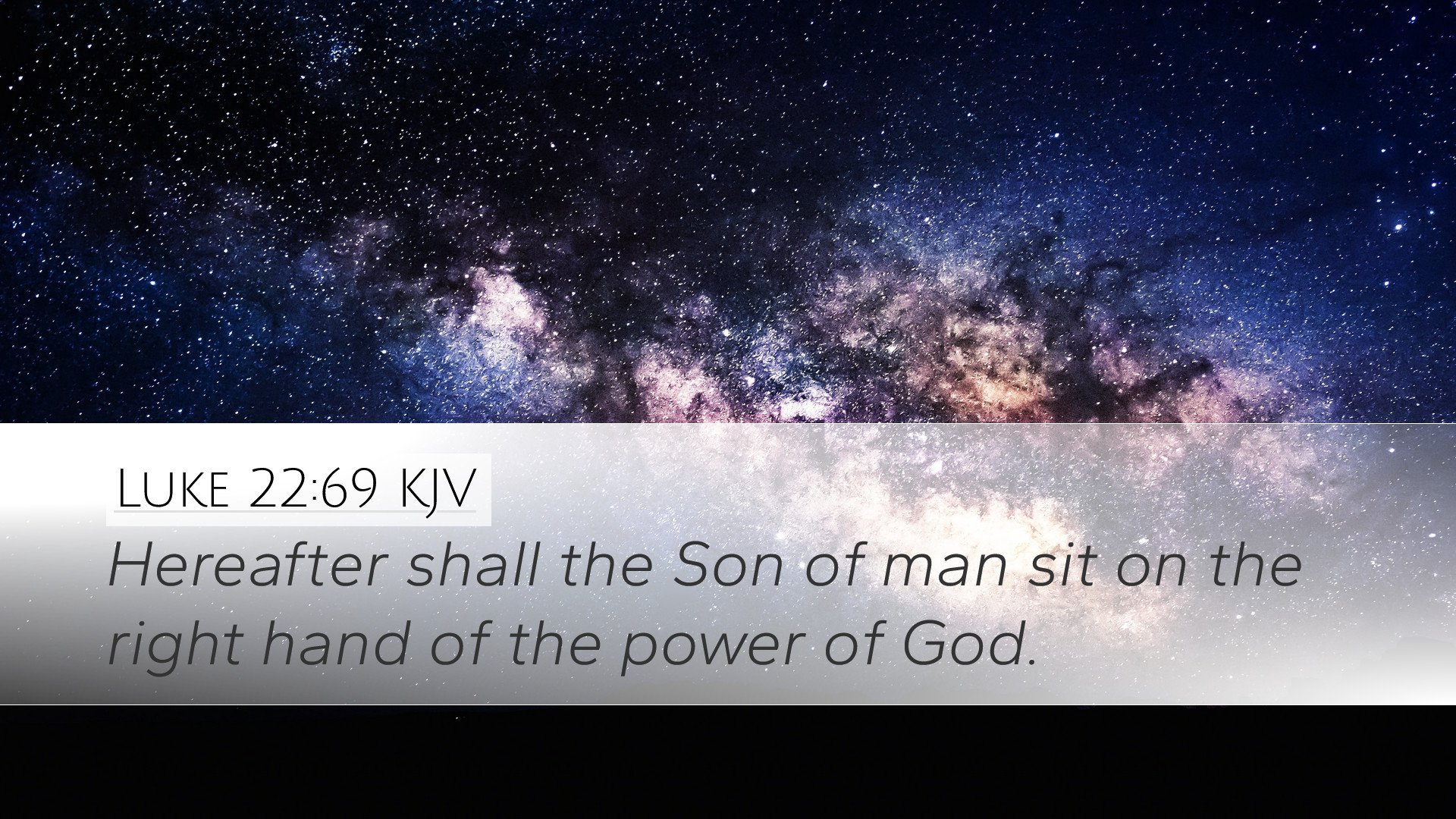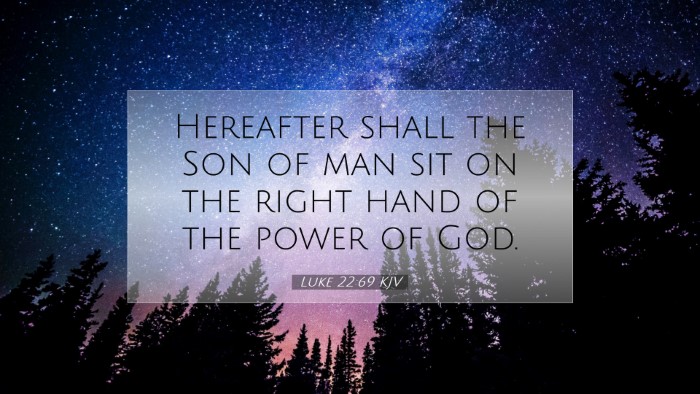Commentary on Luke 22:69
Luke 22:69 states, "But from now on the Son of Man will be seated at the right hand of the mighty God." This verse signifies a crucial moment of revelation regarding the identity and authority of Jesus. It encapsulates profound theological principles concerning Christ's ministry, His relationship with God the Father, and His exaltation after the crucifixion.
Contextual Background
This declaration is made during the trial of Jesus before the Sanhedrin. Here, He stands accused and is challenged about His identity as the Messiah. Earlier in Luke 22, Jesus has been betrayed by Judas, arrested, and brought forth for questioning. The significance of this statement lies in its contrast to the false accusations against Him and the misunderstanding of His mission.
Theological Insights
-
Messianic Affirmation:
Jesus identifies Himself with the "Son of Man" title, which is a reference to His divine authority and messianic role. This self-identification reconnects with the prophecies in Daniel 7:13-14, where the "Son of Man" is given authority and glory. Matthew Henry notes that this is a clear proclamation of Jesus' true nature and His impending glorification.
-
Assurance of His Position:
By stating that He will be seated at the right hand of God, Jesus expresses His exalted position, which symbolizes power, authority, and a place of honor. Albert Barnes emphasizes that this assertion points to the completion of His work and His incoming reign as sovereign over all creation.
-
The Fulfillment of Scripture:
Adam Clarke points out that this statement fulfills the Old Testament prophecies regarding the coming of the Messiah who would take His rightful place in heaven. The right hand of God signifies a position of divine favor and sovereignty.
Practical Applications
-
Assurance in Trials:
For believers facing persecution or trials, this assertion serves as a source of comfort. Jesus' position at God’s right hand reassures us that even when faced with opposition, we can trust in His ultimate authority and plan for our lives.
-
Call to Worship:
Recognizing Jesus' exaltation should lead to deeper worship and reverence. His position signifies that He is worthy of our praise and submission. As Clarke reminds us, our acknowledgment of His lordship reflects our understanding of His work and authority.
-
Empowerment for Service:
The fact that Jesus is at God’s right hand means believers have access to divine power through the Holy Spirit. This empowers us in our ministries and witness. Barnes encourages us to remember that we serve a risen and reigning Savior, which should embolden our mission.
Conclusion
Luke 22:69 is a profound declaration of Jesus Christ’s divine authority and messianic identity. It not only speaks to His present reality during the trial but also looks forward to His ascension and reign. For pastors, students, theologians, and Bible scholars, this verse is a foundational truth that shapes our understanding of Jesus' role in salvation history. It calls us to deeper faith, greater worship, and a commitment to the mission of the Church as empowered by the authority of the one seated at God's right hand.


